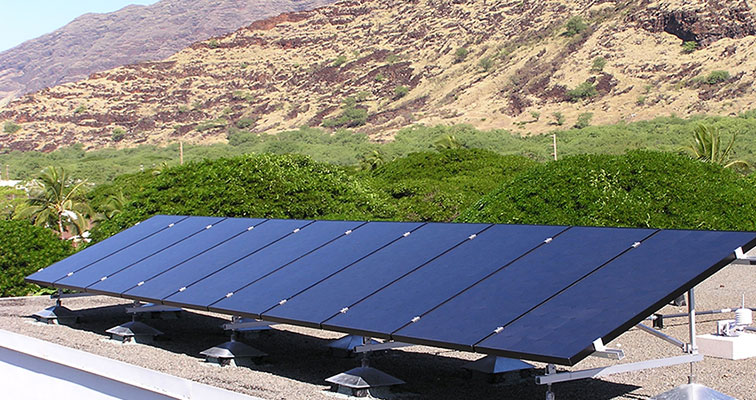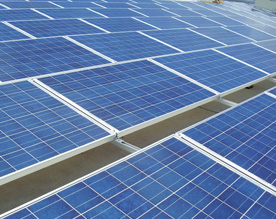
Demonstration & Education
We install and operate small clean energy systems in schools and provide accompanying curriculum.
Smart Power for Schools
Smart Power for Schools is an educational demonstration program initiated in July 2015 to teach students and communities about emerging renewable energy technologies, energy management tools, and equipment that will help integrate renewable energy into a modern electric grid.
The program succeeded Sun Power for Schools, which began in 1996, and supports State of Hawaii Department of Education (HDOE) sustainability goals that include reducing schools' electricity use. Smart Power for Schools is supported by a voluntary partnership among Hawaiian Electric, HDOE, and members of the community.
It is funded through Hawaiian Electric's Green Pricing Program, which provides customers with the opportunity to make voluntary contributions to encourage the development and integration of more renewable energy, and by in-kind support from Hawaiian Electric and other donors.
Demonstration and Education
Smart Power for Schools installs and demonstrates emerging technologies and equipment, for example:
- Renewable and clean energy systems, such as small wind turbines, solar hybrid systems, and fuel cells
- Smart grid equipment, including smart inverters and advanced meters
- Energy storage and management systems
- Energy monitoring, profiling, and management tools
Through collaboration among Stem, Inc.; Elemental Excelerator; Ibis Networks; HDOE; and Hawaiian Electric, energy-monitoring and control devices and software have been installed at 250 public schools. These devices and associated software collect real-time energy use and cost data and transmit the information to principals, teachers, students and energy managers. The graphical information enables them to see when to better manage their energy use and avoid higher energy demand charges.
Information on the smart power technologies demonstrated is made available to teachers and students via a Web interface. Here is an example of Wilson Elementary School's daily energy use analysis, as presented by energy-monitoring equipment.
As part of the program, Hawaiian Electric developed activity worksheets to teach students in elementary through high school about electricity and managing its use. The teaching materials work with the energy use graphs and help students learn about electricity, solar power, energy conservation, and math.
More devices, such as smart plugs and intelligent inverters, will be deployed to maximize energy savings and help integrate more renewable energy on the grid. The equipment installed at public schools becomes property of the Department of Education upon installation.



